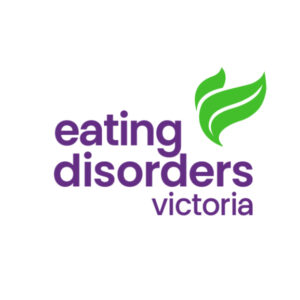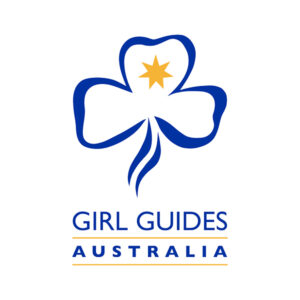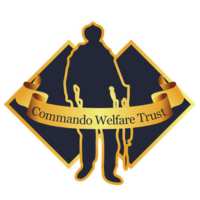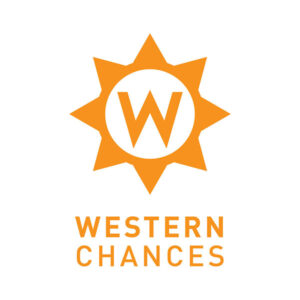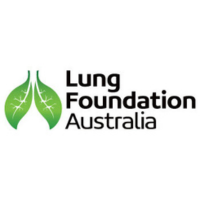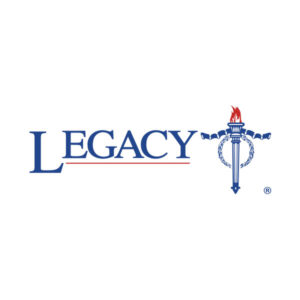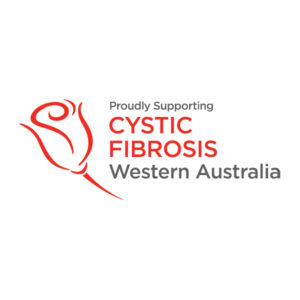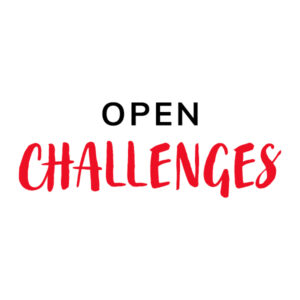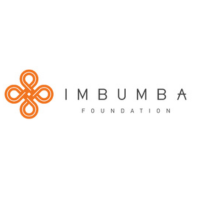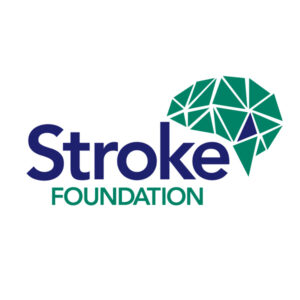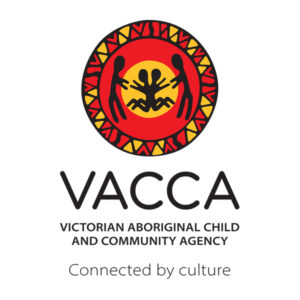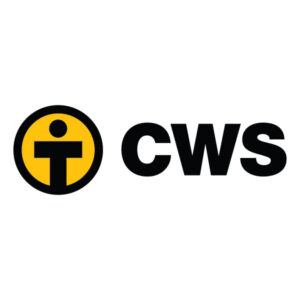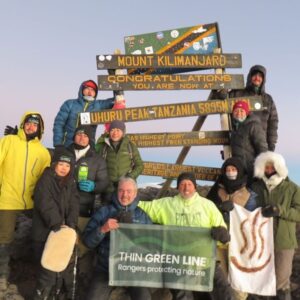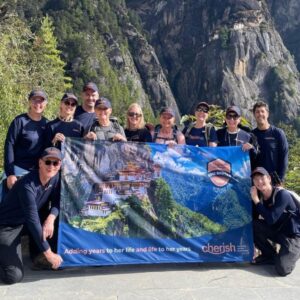For more than 20 years, we’ve been helping adventurers prepare for life-changing journeys - from first-time trekkers to seasoned explorers. With multi-day treks now one of the most inspiring ways to travel with purpose, we’re excited to share this free 6-month training guide to help you get trail-ready with confidence.
Whether you’re tackling your first charity trek or gearing up for a new challenge in 2026, this guide will give you the structure, strategies, and practical tips you need to succeed - while keeping your health, enjoyment, and safety front of mind.
Updated: November 2025
Months 1-2: Building Your Base
The first two months are about creating a foundation of strength, stamina, and consistency. Focus on walking regularly - aim for 3 to 4 walks per week, with one longer hike on the weekend.
Start with comfortable distances (5–8 km) and gradually increase your long weekend walk to around 12–14 km. Keep the pace steady and conversational - this is about time on your feet, not speed.
Add in cross-training like cycling, swimming, or Pilates once a week to build aerobic fitness and mobility. A basic strength routine (think squats, lunges, planks, and step-ups) two days a week will help protect your knees, hips, and ankles.
💡 Trek Tips:
-
Start wearing in your hiking boots early. Begin with short walks, increasing distance gradually to avoid blisters.
-
Experiment with trekking socks — merino or technical blends are best for comfort and blister prevention.
-
Use walking poles occasionally to get comfortable with your technique and rhythm. They’ll become your best friends on long descents or climbs.
-
Walk with your daypack (lightly loaded) to start getting used to carrying weight.
Nutrition focus:
Eat balanced, whole-food meals - lean protein, complex carbs, and plenty of colourful vegetables. Hydrate well and start carrying water on every walk to build good habits.
Months 3-4: Build Endurance And Terrain Strength
With your foundation in place, it’s time to make things more challenging. Start hiking on uneven terrain - trails, hills, or bush tracks - to mimic real conditions.
Your weekly long walk should now reach 16–20 km, and you can start carrying your daypack with light weight to get used to it. If your trek involves altitude or long climbs, include stair or hill sessions once a week.
Continue with two strength sessions, focusing on single-leg stability and core control. Try back-to-back walking days (e.g., a long hike on Saturday followed by a shorter one on Sunday) to simulate multi-day fatigue.
💡 Trek Tips:
-
Train in all weather conditions - rain, wind, heat — so nothing surprises you on the trail.
-
Learn to adjust layers and manage temperature: practice hiking in what you plan to wear.
-
Fine-tune your pack setup: adjust straps, hip belt, and load distribution to avoid shoulder or back pain.
-
Try gentle downhills to strengthen stabilising muscles and prevent knee soreness.
Nutrition focus: Practice trail nutrition. Eat a light meal before your walk and bring snacks such as fruit, trail mix, or nut bars. Replenish afterward with protein and carbs to speed up recovery.
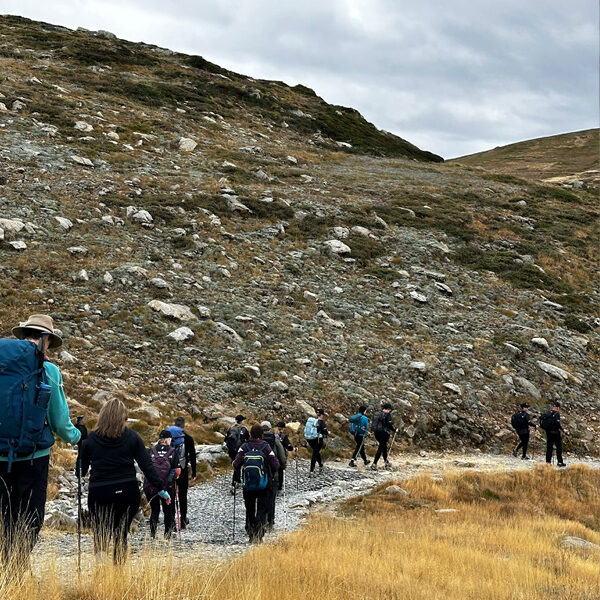
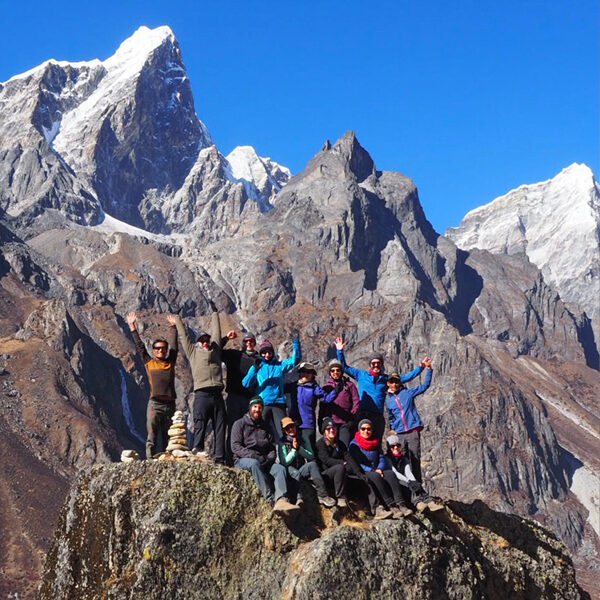
Month 5: Peak Training
This is where your endurance and confidence come together. Schedule two long hikes per month (20–25 km) and continue weekly moderate sessions to maintain strength and rhythm.
If possible, try a two-day mini-trek - hiking on consecutive days with your pack. This experience builds resilience and teaches your body how to recover overnight.
Keep strength and mobility work consistent, and stretch regularly to stay supple and avoid tightness from increased mileage.
💡 Trek Tips:
-
Practice packing your gear efficiently. Keep heavier items close to your spine and high in the pack.
-
Dial in your pole technique - plant them in rhythm with your steps to reduce strain on knees and hips.
-
Break in your trail shoes or boots fully. By now, they should feel like a natural extension of your feet.
-
Simulate early starts - get used to hiking after breakfast to mirror your trek schedule.
Nutrition focus :Refine your eating and hydration plan for the trail. Test what snacks and electrolytes work best
Months 6: Taper And Final Prep
The final month is about restoring energy and building confidence. Gradually reduce training volume by 25-40%, but keep moving with shorter hikes and gentle walks.
Use this time to test your full setup - footwear, pack, clothing, and gear. Break in your boots and fine-tune your packing list. Visualise your trek and focus on your mental preparation.
💡 Trek Tips:
-
Do a final “gear rehearsal” hike: wear everything you plan to take, including boots, pack, and poles.
-
Clip toenails short and use anti-chafe balm to prevent issues on the trek.
-
Practice your morning routine — packing your bag, eating, hydrating — so it feels second nature.
-
Take rest seriously: sleep, stretch, and let your body absorb all the training you’ve done.
Nutrition focus: Stick with familiar, nourishing foods and prioritise hydration. Avoid trying anything new just before departure. Aim to arrive at the start line feeling strong, fresh, and excited.
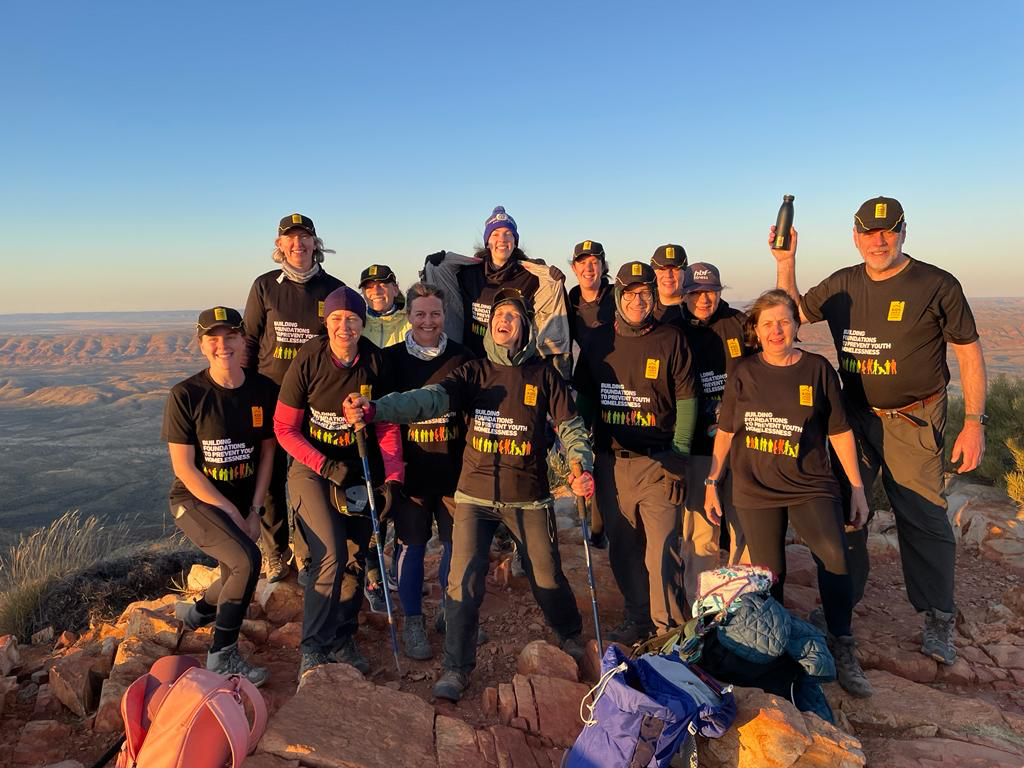
Make Your Trek Matter
Now imagine not only completing your trek but also making a lasting difference along the way. With our 2026 open adventure challenges, you can experience breath-taking landscapes while raising vital funds for a cause close to your heart.
When you trek for charity, every step carries deeper meaning - you’re walking with purpose, connection, and compassion. Reach out today to secure your spot on one of our 2026 charity treks and start your journey toward strength, purpose, and connection, both on the trail and beyond.
Upcoming adventures
Eating Disorders Victoria – Bay of Fires trekHealth
UN Women Australia – Bay of Fires TrekHumanitarian Aid & DevelopmentWomen
Girl Guides Australia – Three Peaks NSWChildrenWomenYouth
Commando Welfare Trust – Kokoda Anzac TrekHumanitarian Aid & DevelopmentWelfare
Western Chances – Three Peaks VIC TrekWelfareYouth
Kids Under Cover – Three Peaks VIC TrekChildrenWelfareYouth
Cherish Women’s Cancer Foundation – EPIC Ten Peaks NSW TrekCancerHealthWomen
Vision Australia – Mini Great Ocean WalkHealthWelfare
Lung Foundation Australia – Larapinta TrekCancerHealth
1 Million Women – Whitsundays KayakConservation & EnvironmentWomen
Indigenous Literacy Foundation – Larapinta TrekChildrenHumanitarian Aid & DevelopmentWelfare
WWF Australia – Larapinta TrekAnimalsConservation & Environment
350 Australia – Whitsundays KayakConservation & Environment
Legacy – Kokoda TrekWelfare
Cystic Fibrosis Western Australia – Larapinta TrekHealth
Choose your charity – Larapinta TrekAnimalsCancerChildrenConservation & EnvironmentHealthHumanitarian Aid & DevelopmentMental HealthWelfareWomenYouth
Cancer Council Victoria – Larapinta TrekCancerHealthWelfare
National Breast Cancer Foundation (NBCF) – Larapinta TrekCancerWelfareWomen
School of St Jude – Kilimanjaro trekChildrenHumanitarian Aid & DevelopmentYouth
DeadlyScience – Larapinta TrekWelfareYouth
Shelterbox US – Yosemite Basecamp TrekHumanitarian Aid & DevelopmentWelfare
Ovarian Cancer Australia – Larapinta TrekCancerHealthWelfareWomen
Imbumba Foundation – Larapinta TrekHumanitarian Aid & DevelopmentWelfareWomenYouth
One and All – Sailing AdventureWelfareYouth
VACCA – Scenic Rim & Yarriba Indigenous ExperienceChildrenConservation & EnvironmentHumanitarian Aid & DevelopmentYouth
NORTH Foundation – Camino de Santiago TrekChildrenHealthWelfare
Choose your charity – Camino de Santiago TrekAnimalsCancerChildrenConservation & EnvironmentHealthHumanitarian Aid & DevelopmentMental HealthWelfareWomenYouth
Motor Neurone Disease NZ – Abel Tasman TrekHealthWelfare
Church World Service – Camino de Santiago TrekHumanitarian Aid & Development
Girl Guides Australia – Vietnam TrekWelfareYouth
The Men’s Table – Three Peaks NSW TrekMental HealthWelfare
Forest and Bird NZ – FiordlandAnimalsConservation & Environment
Trilogy Foundation – Mount Kosciuszko trekHealthWelfare
Down Syndrome Victoria – Mini Great Ocean WalkHealthWelfare
COMING SOON: This Life Cambodia – Cambodia CycleChildrenHumanitarian Aid & DevelopmentWelfareWomenYouth
Wayside Chapel – Three Peaks NSW TrekHumanitarian Aid & Development
GI Cancer Trials – Vietnam trekCancerHealth
COMING SOON: Ovarian Cancer Research Foundation – Japan trekCancerHealthWomenYouth
Cherish – Patagonia TrekCancerHealthWelfareWomen
Liked this article? Here's some more you might like:

